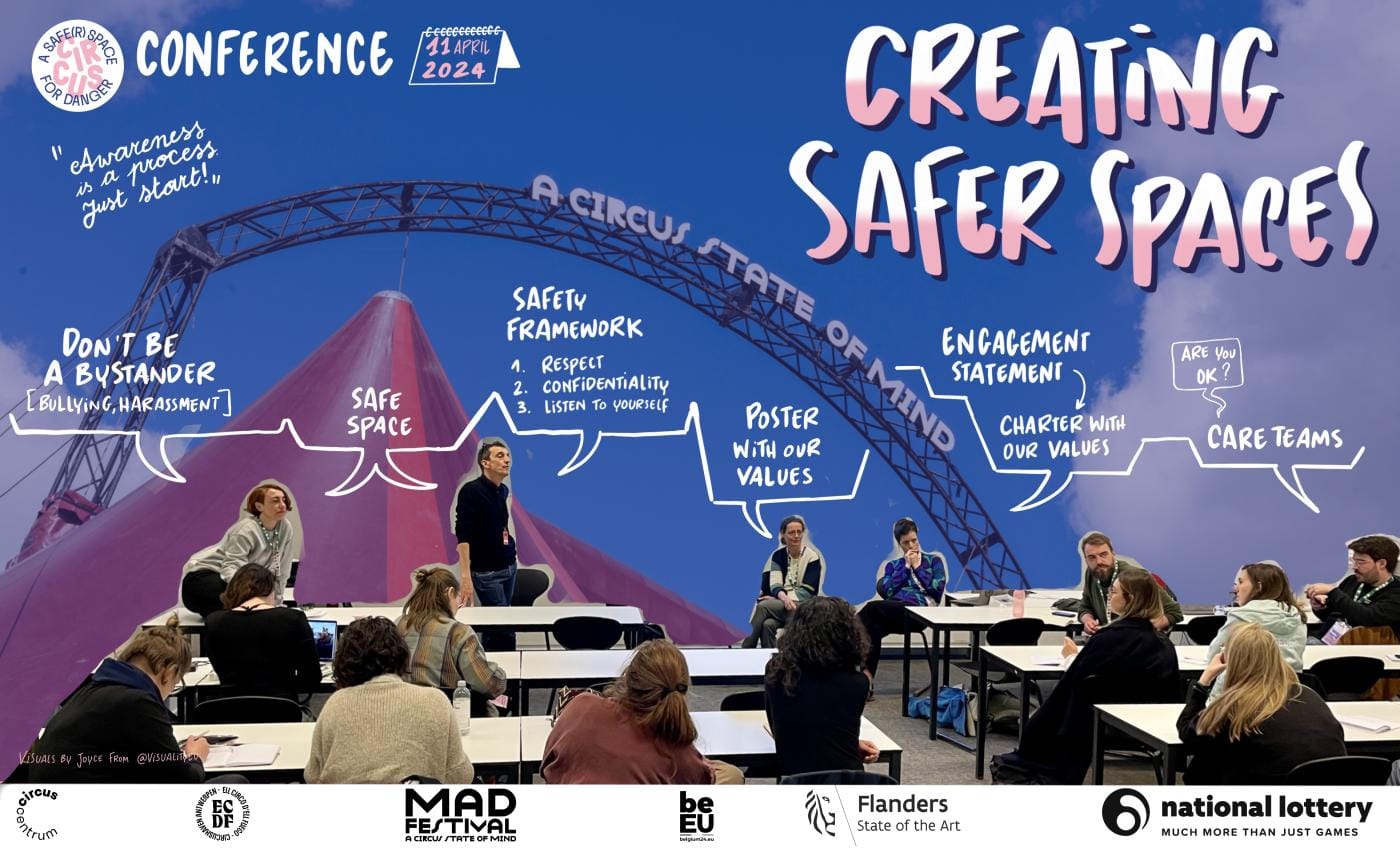On collective atmosphere: safety values to be better together
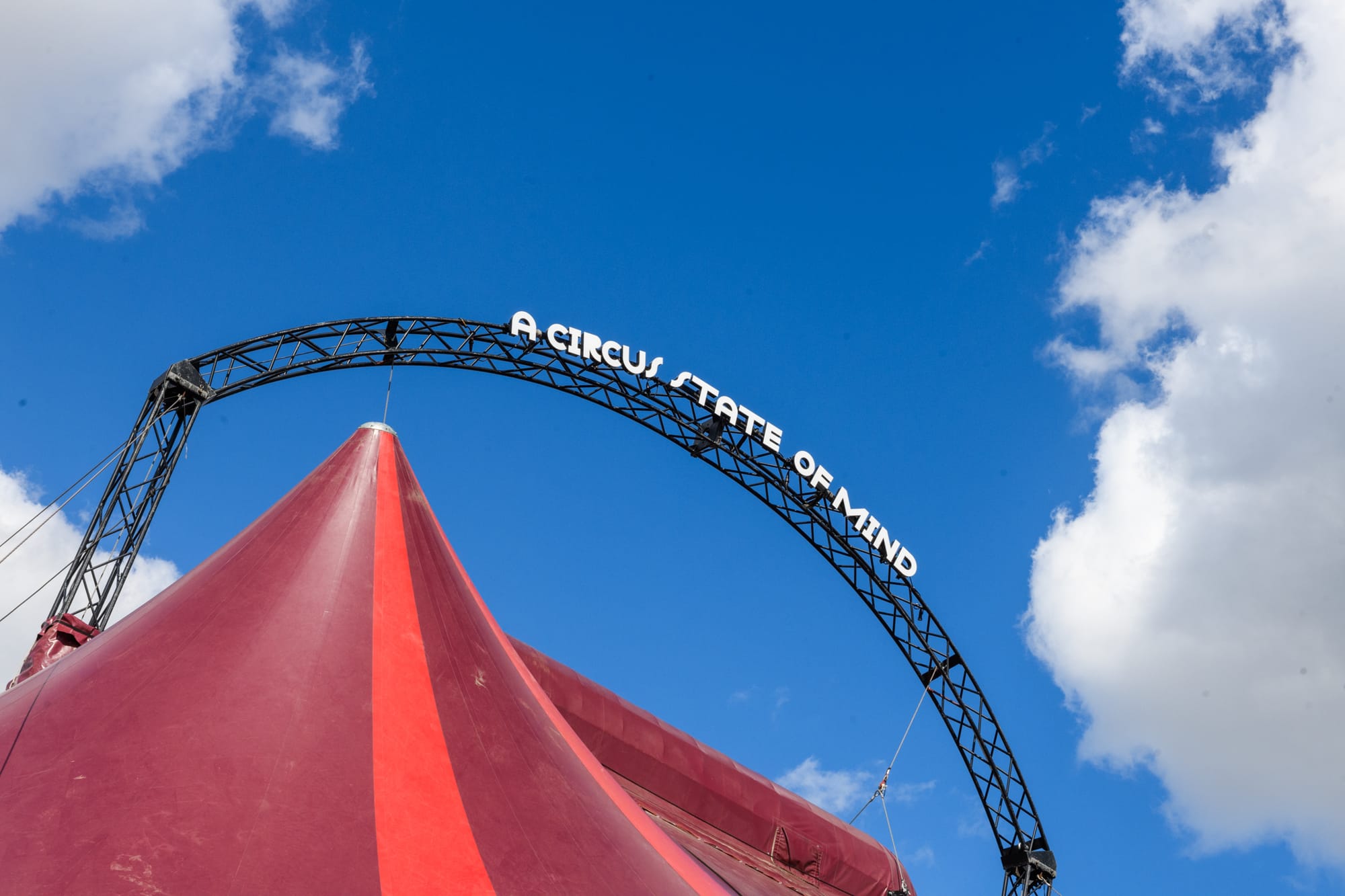
Psychological safety comes from awareness of individual integrity, respecting boundaries, and installing recognisable trigger warnings. However, only practical measures can fix the gap and raise the urgency of acting differently in a collective dimension. The perceived urgency to be more aware of rules around consent and consciousness is a vivid cultural shift to achieve a better quality of life instead of mere practical results. The mutual aspect of safety protocols is that they come into action when safety is considered an issue and as the consequential manifestation of real existing problems. Their focus is on prevention. They apply rules with common sense, respecting individual freedom and disciplining it within the frame of a collective dimension. They test if something is working or not. They will adapt, evolve, or change to fit better in the context, dealing with the mutable reality of our times. In the frame of the conference Circus – a safe)r) space for danger, the panel Creating Safer Spaces: a session for (circus festival) organisers has been a snapshot around the topic of preventing psychological and physical danger and brought together different perspectives on a single issue, innovating the sector by promoting more human-centred values during collective events.
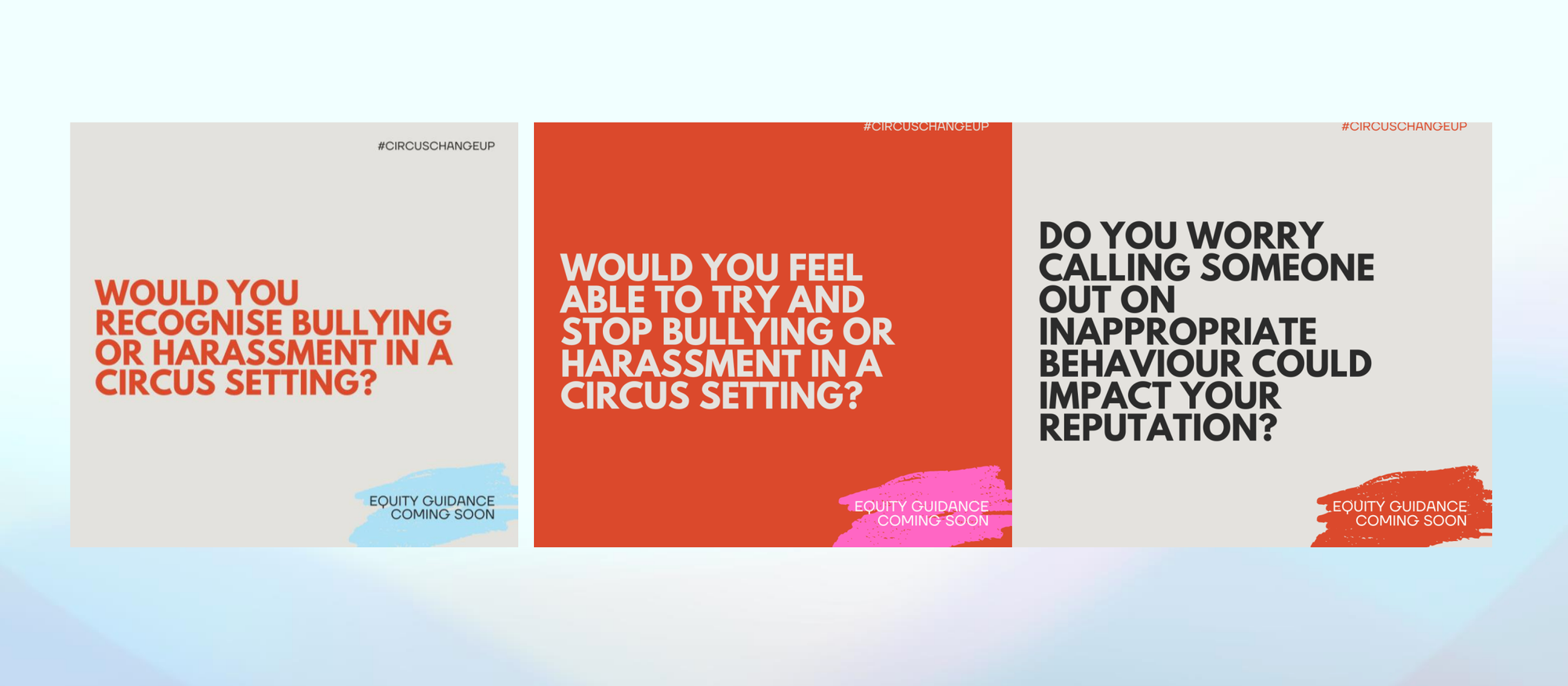
Circus Works/Circus Change Up – Presentation
What happens to young people when they enter the workplace?
The panel started with a focus on the UK’s industry and safety protocols by two internationally renowned experts in circus and education. Lynn Carroll, Executive Director of Galway Community Circus, President of EYCO – the European Youth Circus Organisation and Director of CircusWorks, talking about the active collaboration with Kate Webb, coordinator of the emerging professional network Circus Change Up.
A couple of years ago, Lynn received a call from a director of a festival who was asking her advice on safeguarding after a disturbing incident, and this made her realise that producers, artists, and event industry participants in the UK circus sector have not found any specific protocol for dealing with such situations. With the help of the UK government consultant Anna McGregor, whose company, Safer Spaces, specialises in creating safe spaces at festivals, (check her previous intervention in this article here, part of the FOCUS UK project by Circuscentrum), together with Kate Webb and Circus Change Up, she started working on tackling several topics around safety for young professionals at the beginning of their careers.
Their tool has been managing meetings around sexual harassment and bullying at festivals and events, to gather young professionals and organisers and listen to audience questions and exchanges. These events provoked a general increase in awareness of the issues and collating opinions from the protagonists. They discussed the benefits of having systematic measures in place to define a mutual protocol and adapt it to each particular scenario. They emphasised that nothing can be done if you do not get more involved.
That’s how they started dealing with simple but effective dilemmas. How is it possible to reveal the unpleasant sides of a situation while you are at the beginning of your career, and you do not want to feel exploited but rather improve the situation around you? How can we discretely mediate between the two sides involved, protecting them and other people? What are the boundaries when we enter the business? What do we feel comfortable with?
The spotlight moved to young freelancers in the sector, when Kate stressed that emerging artists are often in the position of wanting to please people, and they have difficulties talking about their fears. If someone wants to talk about abusive behaviour without reporting it, the only thing you can do is provide a safe place to listen to this person's problem and respect that confidence. Working intimately with people must involve thinking about consent during the rehearsal time, emphasising communication skills and mutual respect for boundaries. While coming out and becoming public always represented a sensitive touching point. Therefore, they understood it must be imperative to create an equity-focused union in the sector, protecting the young generations from power abuses.
In their research journey, they got inspiration from the actions of other institutions like the Federation of Scottish Theatre, UK-based Equity and the Irish Safe to Create. Lynn praised the SpeakOUT project by FEDEC, addressed to senior managers in the sector oriented to change the paradigm. Kate quoted UK-based company Revel Puck Circus, conscious of generation differences in audiences who established a safe culture as a preventive measure and training to bring people on the same page.
For Lynn and Kate, participating in the conference in Antwerp is a precious occasion to network and confront participants’ experiences, inspire and collect best practices nourishing the mutual expertise in the sector. What will be their next safe move? They continue working in the circus sector to develop guidelines and protocols, implement policies and proper behaviours, and, at a grassroots level, bring together questions we want to address and start a dialogue with the stakeholders.
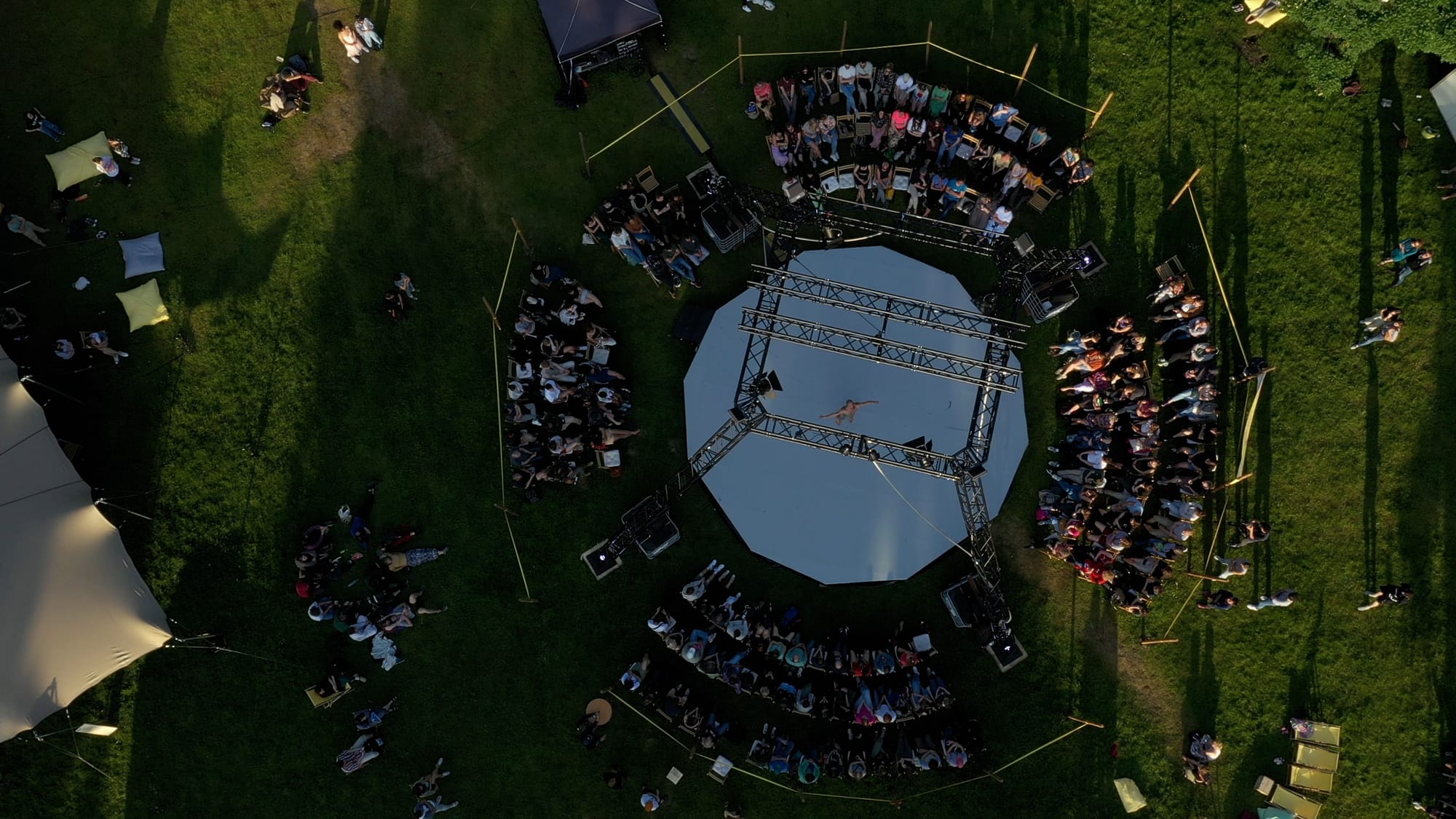
CircusDanceFestival Awareness Process – Presentation
Awareness as a curatorial practice
The floor passes to Luzie Schwarz, production manager for the German CircusDanceFestival, a five-year young and promising festival run by the circus dance company Overhead Project based in Cologne. As a yearly event born during the pandemic, the festival is an example of reflection on how adapting your format is crucial. Its history started in 2020 and evolved as the blossoming of an event from the digital sphere which landed in a temporary village, hosting several activities for five days. Based at the circus pedagogical centre Latibul, embedded in a park near the river Rhein, the barrier-free location welcomes you with a desk dedicated to Awareness next to the ticketing counter, underlining the theme’s importance since the beginning of your stay. Their journey in discovering and implementing the Awareness protocol started in 2022 when the festival implemented a code of conduct and trained a pool of volunteers to supervise the event and provide support in difficult situations.
To do so, they trained themselves by participating in university events dedicated to the theme and adapting the collected knowledge to their specific case. As Luzie reminded us, Awareness is a vast topic, and her advice to organisers is to focus on particular aspects and implement rules little by little, understanding that becoming better at dealing with the well-being of the audiences is a work-in-progress experience. Being part of the awareness team can also provide a participatory experience for the volunteers, contributing to their formation as professionals actively living the experience of a festival from the inside.
Luzie's presentation navigates the years of Awareness in CircusDanceFestival, from the first edition’s actions to the future and is a dedicated example for other festivals to follow a similar model. In their case, Awareness could be seen as an active part of the curatorship, entangling the focus of the topic with the discussion program that runs parallel to the programming of the shows, thus reflecting a commitment to exploring the spectrum of actions to accompany the collective experience. The initiative combined the festival's intent of tackling the wellness of its participants, connecting the different communities, from the dance and circus professionals in the area to the international guests and the families involved in the Latibul programming. Their awareness protocol is well-being-oriented, not only covering possible sexual harassment but also the psychological state of safety related to the body conditions. It covers a broader approach to suggest respect, asking for collaboration in following the rules.
The code of conduct is visible in various festival locations, and it is easy to individuate the people in charge during the event thanks to their t-shirts. A designated area can welcome people who feel uncomfortable and provide comfort. In 2023, they also implemented a safety phone line that can be contacted about any problems in every involved venue. In 2024, they focused more on accessibility, integrating their social media plan with a video briefing about spatial points of access to disabled people.
The precious support of other organisations active in the field, like the German Feminist Initiative, has enabled the festival to expand its partnerships and contribute to delivering dedicated workshops and roundtables, disseminating good practices on the topic.
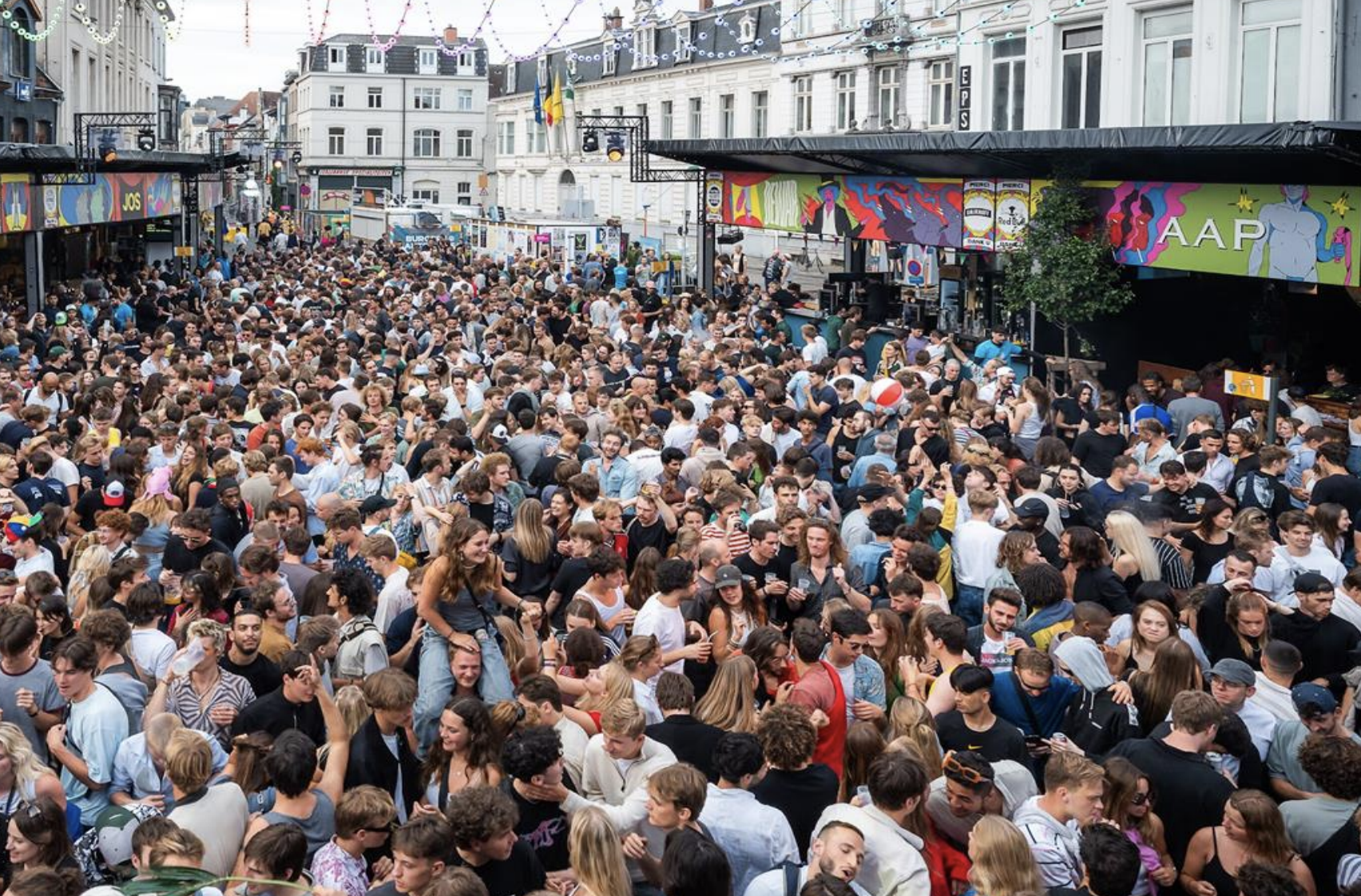
Flow at Circus – a safe(r) space for danger – Presentation
Caring about the party masses with Flow
From a German circus festival experience, we move to the perspective of a Belgian organisation specialised in monitoring safety during massive music endurance events, the Gent-based Flow, represented by Adriaan Doutrepont. Active for more than 15 years, Flow's expertise and mission is to provide advice for the set-up and the right people to keep the space safe and a contact point and open ear for people who experience over-stimulation, sexually transgressive behaviour or discrimination at an event. Adriaan began working in nightlife more than ten years ago as an "atmosphere buddy" at the Ghent Festival, a 10-day city festival and evolved his skills on the ground.
The role perfectly fits its description, revealing the core aspect of their principal activity: providing trained helpers monitoring the space while people are having fun. With his presentation, we have been catapulted into the middle of the case history of the Ghent festival, exploring the variants of possible vibes at a massive event open to everybody – last year's edition raised the peak to 1.600.000 visitors in ten days – in the narrow streets of the historical city centre, involving around 100 venues open from 11 PM to 10 AM.
The audience is various and transgenerational, mixing the local inhabitants until the international guests come for the occasion with the same goal: to have fun. There are drugs like alcohol, the vibes are highly enthusiastic, and happiness can often be mixed with altered states. The team is also responsible for escorting the people in wheelchairs into the crowd, facilitating inclusion and supporting the wellbeing of everybody.
But when everybody wants to stay until the very ultimate moment and to participate until the last concert or party in the late morning, how do you control all of this? With coolness, attention, and assertive training based on conflict management.
If there is a conflict among the audience, the Flow team will try to solve the problem. In 99% of the cases, Flow solves a conflict without involving the police and manages the event with ordinary people not wearing a badge. Atmosphere buddies are always recognisable for their smile, assertive mood and ability to ask the participants if everything is OK and if everybody is having a great time. They stay sober, they talk with everybody. The primary factor remains in listening to needs and asking what they can do for you. The organisation team is various and includes teachers, and students, working in different industries but passionate about this role, and in the case of the Ghent festival, they take care of the masses for all ten days.
Flow is prevention-oriented and emergency trained. Its mission is to prevent an emergency and be able to react in case there is one. An atmosphere buddy is not called to solve but works more as a human first aid kit to deal with the situation that occurred. If something is wrong, the person in care must intervene and refer to a coordinator who can deal with the triggered problem. Flow shares awareness around the use of drugs and their mix, creating a responsible-oriented culture around the fruition of an event.
Another crucial safety aspect is the close collaboration with all the professionals dealing with the audience. To act more in synergy, the Flow team gives a short training also to the technical crews and the bar supervisors to explain what they should do in case of emergency and how to contact them immediately.
But how does their training work? During the year, the organisation tests people interested in the role to see if they are assertive and able to stay calm in any situation that tends to be overboard, monitoring if they can step back and take care of themselves even in an overboard situation. If the skills match, the person receives advanced conflict management training.
Getting educated to interact in specific cases, like dealing with panic attacks, people temporarily incapable of talking or sexual harassment cases require a more specialised formation, and the trainee becomes part of the "care team". Even though they are directly in contact with the police, Adriaan explained that in case of sexual harassment, they never push a person to fill out a complaint, their role is focused on offering psychological support to the victim.
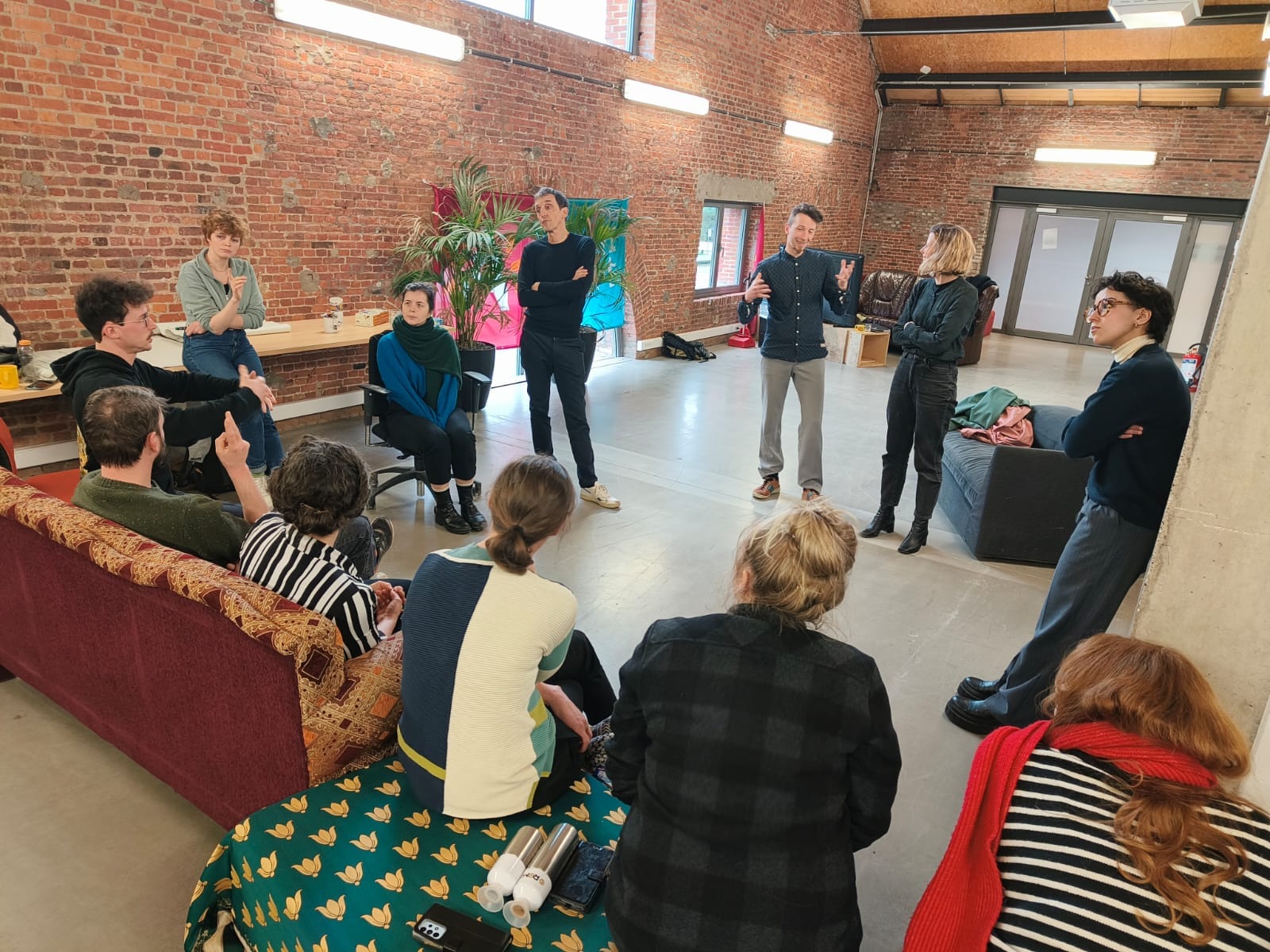
Circuscentrum/MAD festival/Ell Circo Dell Fuego - Presentation
Tips to create and maintain a no-discrimination atmosphere
To conclude the session, MAD Festival, Ell Circo D'ell Fuego and Circuscentrum explain the safety training they attended before the conference with the Belgium-based Plan SACHA, a skilful expertise agency that supports event organisers in developing protocols to respond to aggressive or intimidating behaviours.
Transparency and visibility are the two factors orbiting around the driven ideals of the MAD Festival. According to its artistic director, Dré Demet, the festival adopts an awareness policy that spans across all its departments. As a new circus festival, it can rely on the core expertise team who runs it, with a long track record of being responsible for training for other big music events during the year. The festival gathers different stakeholders comprising a varied community. However, in every aspect of its teams, from the core to the freelancing technicians hired for the occasion, each contract signed includes a no-discrimination clause. At the same time, every employee follows the same code of conduct. Embracing what you stand for is the key to respecting all the segments involved in the circus collective days in place, from professionals to volunteers, passing from the artistic crews, and audiences including families with kids. Their proactive approach involves referring to the Awareness chart printed and visible at various locations. But mostly, the key is to openly communicate care for the mental well-being of their guests because the goal is always to maintain a relaxed and inclusive atmosphere everywhere.
For Mieke Gielen, pedagogical coordinator of Ell Circo D’ell Fuego, safety is an absolute priority and the tool to manage danger and accompany young people in discovering how to confront risks and be responsible. At the beginning of their activities in Antwerp, they were seen as the most dangerous school in town since they were the first circus school for kids teaching teeterboard. As it often happens, knowing the risks allows you to learn even "dangerous" skills. They started to work on safety policies around five years ago, concentrating the effort on self-discovery and how to behave with students with simple actions. All teachers needed to sign an ethical code on what they wanted to achieve in the circus sector and how. These rules are summarized in a document, which remains their initial step in spreading awareness. Preventing any potential psychological damage or misconduct is the norm. In their structure, each student knows whom to approach if issues arise, thanks to the Integrity Contact Person (ICP) role, the initial contact for concerns related to transgressive behaviour, including bullying, discrimination, and physical and sexual integrity.
But “Who watches the Watchmen?” Even the already skilled people needed to be trained. As Circuscentrum’s responsible for internationalisation, Séverine Van der Stighelen explained their training more closely to prepare the ground before running the international event. The conference organisers received a 1-day training on key concepts about discriminatory practices and the myths surrounding sexist and sexual violence. Plan SACHA provided actual case studies to start thinking around the topic and examining the crucial aspects to address during a public event. When we talk about safety, theory and practices are frequently intertwined. This experience shaped their charter and care angels' protocol, encouraging deeper exploration into psychosocial aspects of safety.
